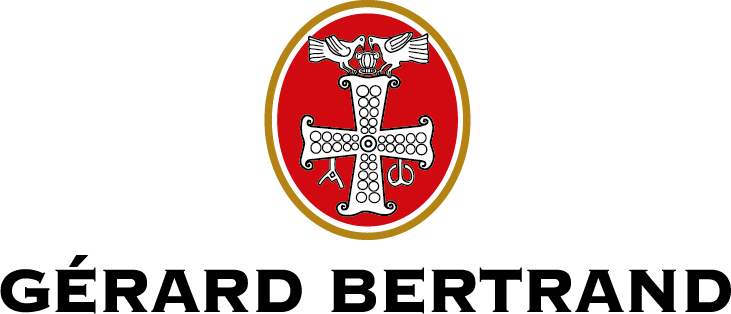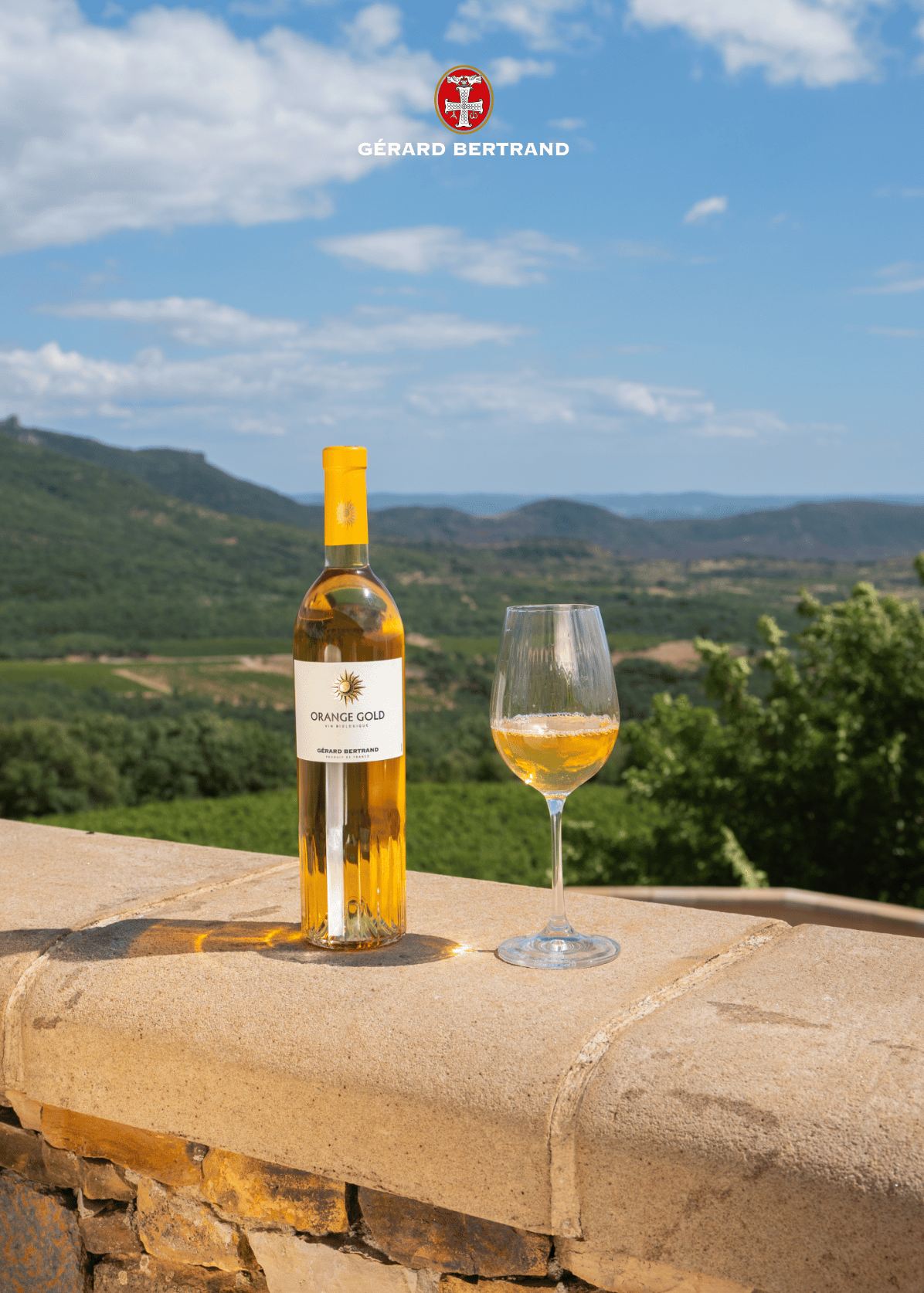The ideal wine in 4 questions
TAKE THE QUIZ


Also known as amber wine, orange wine is a special type of wine that deserves attention. Little known, orange wine is considered the fourth color of wine, after red, white and rosé.
Gérard Bertrand, as a lover of terroirs and wines with character, is keen to bring this historic wine back into fashion, thanks in particular to theOrange Golda certified organic orange wine with freshness, light tannins and subtle natural acidity.
Discover the Orange Gold Gérard Bertrand organic wine
If we had to give a simple definition of orange wine, we could say that it's a white wine vinified like a red wine. Indeed, like white wine, orange wine is made from white grapes.
What makes orange wine so special is that the grape juice is left in contact with the skins, seeds and stalks (the structure of the grapes) for a certain period of time. During this maceration phase, the tannins concentrate and the amber-yellow color characteristic of orange wine appears. Like other types of wine, orange wines can be produced using traditional, organic or biodynamic methods (What is an organic wine? / What is a biodynamic wine?).
The AB and Demeter labels make it easy to identify the most environmentally-friendly wines. These labels, a guarantee of quality, are obtained after being certified and controlled by independent bodies, and clearly identify wines that respect the specifications of organic and biodynamic agriculture.
Discover all our orange wines.

Often overlooked, orange wine is the very origin of wine. Indeed, the first wines, which were probably orange wine, were produced in the Caucasus (the region separating Europe and Asia, between the Black and Caspian Seas) over 8,000 years ago.
The oldest traces of wine-making can be found in Georgia, the cradle of viticulture. The Georgian people macerated and aged white wines in buried amphorae. This little bit of history puts paid to a common misconception: it wasn't the Romans or the Greeks who invented wine.

An orange wine is (all the more so if it's organically or biodynamically produced) a wine of character, tannic, with very present aromas. Although each orange wine has its own specific characteristics, orange wines are distinguished by their subtle, complex structures, balanced with a good presence of tannins.
The color is bright, ranging from pale yellow to amber. One of the main characteristics of an orange wine is its freshness and light acidity. Orange wine is a very dry wine, which means it doesn't devote too much space to sugar and alcohol. Categorized as a tannic wine, an orange wine can accompany an entire meal, from aperitif to dessert. Its specific taste may surprise (in a good way) lovers of more "classic" wines.
Compared to white wine (discover the Gérard Bertrand white wine collection), which is the wine color that most resembles it, orange wine has more powerful aromas, yet is more easily digested. Orange wines are naturally acidic, but less so than white wines. Finally, thanks to their high tannin content, orange wines have good ageing potential.
Find out more about the different types of wine:
Production of Rosé Wine : How is it Made?
Rosé winethe best rosé wine and the rosé wine LanguedocFind out more about :

4,500 years ago, in the heart of Georgia, an astonishing, intense, bold wine was born: orange wine. Long in the shadows, it is now back in the spotlight. At ...
Read more
When the heat sets in, certain wines are the obvious choice. Gris Blanc, the timeless rosé that celebrates its 20th anniversary this year, continues to appeal to lovers of freshness. Alongside it, L...
Read more
Every summer, in the heart of the Languedoc region, a unique event transforms a winery into an open-air stage: the Jazz à l'Hospitalet festival, founded by Gérard Bertrand. More than just a...
Read more